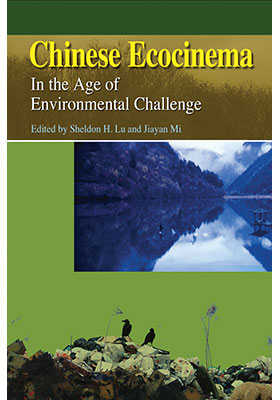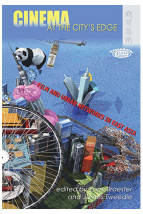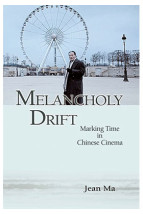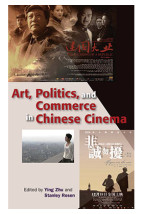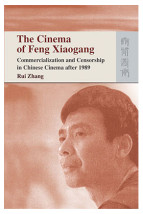Chinese Ecocinema
In the Age of Environmental Challenge
(中國生態電影:環境挑戰的時代)
ISBN : 978-962-209-086-6
September 2009
384 pages, 6″ x 9″, 68 b&w illus.
Ebooks
This anthology is the first book-length study of China’s ecosystem through the lens of cinema. Proposing “ecocinema” as a new critical framework, the volume collectively investigates a wide range of urgent topics in today’s world: Chinese and Western epistemes of nature and humanity; the dialect of socialist modernization amid capitalist globalization; shifting configurations of space, locale, cityscape, and natural landscape; gender, religion, and ethnic cultures; as well as bioethics and environmental politics. The individual chapters zero in on diverse Chinese-language films by talented directors such as Zhang Yimou, Chen Kaige, Tian Zhuangzhuang, Jia Zhangke, Lou Ye, Fruit Chan, Wu Tianming, Tsai Mingliang, Li Yang, Feng Xiaogang, Zhang Yang, Wang Xiaoshuai, Wang Bing, Ning Hao, Zhang Ming, Dai Sijie, Wanma Caidan, and Huo Jianqi. The book is a timely engagement with Chinese cinema’s ecological consciousness in a historic moment of unparalleled environmental crises and destruction. In the coming decades, film will be one of the primary ways in which China adopts and expands ecological consciousness. This book will interest scholars in film studies, environmental studies, ecocriticism, gender and cultural studies, Chinese studies, and globalization.
“A timely volume addressing issues of hydro-politics, eco-aesthetics, manufactured landscape, and bioethics, Chinese Ecocinema charts a new direction for film studies and establishes cinema as a vital force in renegotiating fractured relationships among nature, history, technology, and culture, as it gestures toward a place-bound ideal of planetarianism.” —Yingjin Zhang, University of California, San Diego
“This impressive volume, with leading contributors from a wide variety of intellectual disciplines, unites two of the ‘hottest’ areas in scholarly research, media reporting, and popular interest: Cinema Studies and the Ecological Crisis facing our planet. Ironically, Mao’s emphasis on the importance of man over nature, and the post-Mao reformers’ emphasis on breakneck economic development above all else, have both been devastating to China’s ecosystem. While Chinese filmmakers, beginning in the 1980s, had already begun to address these serious environmental problems, scholarly research has thus far lagged in noting the intersection between ecology and film. As the editors accurately note, this volume is the first shot in what is intended to be nothing less than a new critical paradigm in Chinese film studies.” —Stanley Rosen, University of Southern California

